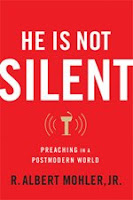I don't know if you heard about the tornado that hit Minneapolis last week during the Evangelical Lutheran Church of America's (
ELCA) convention, but commentary is starting to make its way around the
blogosphere and I wanted to pitch in my 2 cents (you may want change).
Briefly: One of the items on the agenda for the ELCA to discuss was whether or not "practicing homosexuality was a behavior that should disqualify a person from pastoral ministry." On the day that item was going to be discussed, an un-forecasted tornado struck the church where the meeting was taking place. Now... three things:
1. I respect the fire out of John Piper. His response to N.T. Wright titled "
The Future of Justification" was a masterpiece example of taking a stand against something with a careful blend of scholarship and the spirit of a pastor's heart. His other books are terrific as well. So, when I realized Piper had
blogged about the tornado, it really grabbed my attention.
2. I believe the Scripture plainly says that homosexual behavior is a sin against God and that men and women who blatantly choose to take part in and justify any kind of clearly sinful behavior are unqualified for ministry leadership (1 Timothy 3:2; 3:8; 3:11). If they are believers God's discipline is certain (Hebrews 12:6), and if they remain unbelievers God's judgment is assured (Romans 1:18-32).
But...
3. We must be extremely, extremely careful before stating with certainty that a specific event is God's judgment on specific people for a specific sin. The tornado damaged other buildings as well, and tornadoes happen with some regularity all over the country, even if not in Minneapolis. I think we walk a dangerous line when we are quick to draw a connection between natural events which are a reminder that we live in a fallen world, and God's specific purpose for any of those events.
God may have had many purposes for the tornado that touched down in Minneapolis. One of those may well have been a warning shot to the ELCA - God certainly isn't happy about the direction they're taking - but we cannot assert that judgement was God's main purpose with certainty.
Remember the blind man in John 9:1-3? The disciples were convinced that his blindness was judgment from God. The connection was too obvious for them. But Jesus corrected them, and proceeded to show them a different purpose.
The ELCA should certainly examine their hearts and plans to ensure they are in line with God's. We should certainly speak out against the direction they are headed. But I think it's a bit presumptuous to declare God's purpose in a natural event without a clear word from God. Otherwise, we put ourselves on the same road as Pat Robertson who declared that Hurricane Katrina was God's judgment on New Orleans, and Jeremiah Wright who declared that 9-11 is what America deserved for its past sins.
We must speak the Truth where the Bible speaks it, and be careful when we draw connections between "this" and "that" which aren't explicit.






